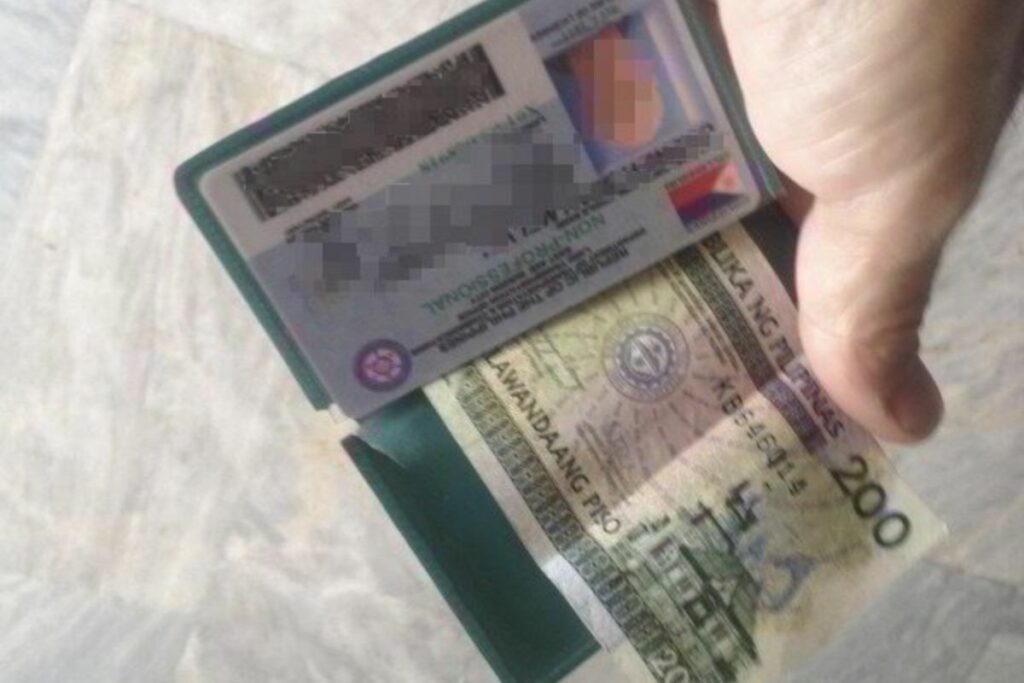The Philippines is by far the most beautiful country I’ve ever been to, lots of beautiful islands and things do here, but the same as any other country, corruption in the Philippines is also a big problem.
In this post, you’re going to get some tips on how to deal with corruption in the Philippines once you’re here.
I”m going to talk about:
- Overview of Corruption in the Philippines
- Real-Life Stories and Examples of Corruption in the Philippines
- How to Work Around Corruption in the Philippines While Doing Business
- Dealing With the Philippine Police
- How to Handle a Minor Traffic Violation
- Do You Pay Bribes?
- Working with Lawyers in the Philippines
- Safety in the Philippines
Ok, let’s jump into the overview.
Corruption in the Philippines
While the government works diligently at eradicating the massive corruption in the Philippines that permeates the whole society. It is also creating more opportunities for its government to be corrupted by the very nature of the systems implemented to combat this scourge.
There must inevitably be human beings conducting these checks, enforcing and administering these regulations.
Corruption in the Philippines is not confined to the government. Here are some examples.
An electrical company whose supervisor is also the only “independent contractor” with authority to install transformers can charge an inflated amount for the contract. Refusal to pay the exorbitant rate means no electricity for your business.
An insurance adjuster who can “expedite” the process to get your settlement is simply holding the check to create this situation.
Even if we embrace these reforms and steadfastly refuse to participate in any form of corruption in the Philippines, those that continue to practice it will have an unfair advantage over those that don’t.
A business that pays customs to allow smuggling or lower import duties will be in a position to compete unfairly in a price war with its rivals because of lower costs.
How Does Business Run in the Philippines?
A businessman who allows the mayor to stick his hand in his pocket will receive building, zoning, planning concessions not available to others. Citizens refusing to “pay for their traffic violation in cash” must then pay the higher ticket amount and must then stand in line at the local City Hall for almost half a day for the privilege of doing this. No automatic systems here.
From a practical viewpoint, I do not advocate paying bribes for situations that are recurring. Business licenses, Zoning issues, or any type of cyclical permits should be followed to the letter of the law. Paying to circumvent them will come back to bite you in the butt as the inevitable new government retroactively enforces static regulations.
I do recommend payment for single offenses like a traffic violation. Pay & drive away. Issues with the tax people can also be dealt with this way as the paperwork accomplished in conjunction with the payment will absolve you of any future obligations.

The primary purpose of “enforcement” is to deter you from committing offenses so these payments are effective. You certainly do not want to pay again and the payment goes to the parties that caught you so they are incentivized to catch more transgressors. I know this viewpoint is warped but this is my view from the ground.
A Chinese smuggler once told me “in some Asian countries the corruption is in the skin, some of it is in the flesh but the corruption in the Philippines is in the very bones”.
It literally permeates society from the lowliest “Tanod”, basically a civilian police assistant, to the presidential office. Anyone with any modicum of authority is susceptible to bribery and many openly encourage it.
Dealing with the Philippines Police
The Philippines is a safe country, and there’s not a lot of violent crime here.
But it’s also a poor country. And if you look like you’ve got money, EVERYBODY wants a piece of the action.
And guess what? Some of those people are the police.
Watch this short video for you to learn what I mean.
Let me tell you more about the Philippine Police and how to stay out of trouble while you’re here.
While corruption in the Philippines is rampant, don’t let it stop you from booking your holiday. What you need to know is how to deal with it.
I’ll give you one good example that also happened to me before. Dealing with the traffic violation.
How to Deal with your Minor Traffic Violation
Traffic stops are handled differently here as well. The absence of a computer tracking system for motorists means they must be creative about collections. They really cannot attach a ticket electronically to your license so, to assure payment…THEY TAKE YOUR LICENSE on the spot.
Hmmm, not fun as this creates a HUGE problem. You must then return to the “scene of the crime” days later, pay the fine & get your license back.
Oh, sorry. I mean, find the place where your license is being held and stand in line at the inevitable 3 windows for the privilege of paying. That will waste the best part of any day. Did I mention this is usually outside in 30-degree heat with fixers pushing papers past you at the window and butting in front of the line?
Get the picture? It’s no fun getting in trouble in the Philippines.
So here is how you get away with this. It can be as simple as something like this:
Suppose your driving through town and a policeman pulls you over. When you pull out your driver’s license, you hand it to the policeman with 200 pesos and the policeman will hand it back without the 200 pesos. This is standard behavior in the Philippines.
You see, the Philippines is not a violent country. Violent crime is quite rare here. When they do occur, the Philippines police are great at protecting you. However, when it comes to money they will always want to have some of it.
That’s why I highly suggest when you get into trouble, always pay the first person and move on.
Always Pay the First Person
It doesn’t matter what kind of trouble you’re in. It doesn’t matter if it was your fault or somebody else’s fault.
Once an issue has begun with the Philippines police, do not expect it to improve. Assume that things are never going to improve. More people will get involved as the issue escalates. As this continues, it becomes increasingly expensive for you to buy your way out. If there are more police, there are more people. If you go to the Philippines police station, there are more people again.
Regardless of what happens, it will always be cheaper at the start than wherever you end up.
Here is one best example of this.
New Years Eve in Makati
A friend of mine got in a wee bit of trouble on New Year’s Eve in Makati. He was accused of grabbing a girls’ ass, he refuses to “pay her off” to keep her from calling the cops. Now, whether he did ass-grab or not is moot. As soon as the police arrived, the price also went up since there will now be more to be paid. The price at this point was P5,000, about $100.
Still, he did not want to pay for something he did not do so off they went to the Police Man station. At this point, more people to pay and the price will go up.
My advice always is…PAY THE FIRST PERSON and walk away. They have NOTHING better to do and whether you did something wrong or not is irrelevant. Also, it is usually small money, comparatively. Pay up and walk away.
When you are at the Police Station, calling your embassy won’t save you either. All it can do is ensure you receive “due process”. This means that you can no longer buy your way out since the Embassy will have its eye on you. If this happens, you’ll be stuck in jail until the issue is resolved and that can be years.
Now you have to take it to the court, and I tell you this will not be easy and will be more expensive, let me tell you why.
Lawyers in the Philippines
In the Philippines, court cases can languish for years. Why? simply because of how the lawyers in the Philippines make their living.
Here is something basic that you must understand. If you go to a lawyer with a problem and he solves the problem immediately then his income stops abruptly, correct?
Obviously, this is not in his best interest, is it?
Therefore, there’s a fair chance he will not do his utmost to solve your problem for you. There is actually a very good chance that he will exacerbate it to keep the money flowing.
They will drag your case out for as long as possible as they make more money. They will actively try to avoid reaching a resolution, simply to keep making money from you.
For people used to a litigious society like the US, you’re in for a big surprise here. Court cases can flounder for years for even the most minor of civil cases.
Property disputes over titles, business disputes over contracts, partnerships, marital disputes, are all things that you really, really want to settle amongst yourselves. Going to a lawyer is just not a viable solution here.
How to Deal with Lawyers in the Philippines
Suppose you ask your lawyer for advice and through ignorance or design, he gives you bad advice. What do you think your options are? The Philippine Bar Association cannot help you. Your only recourse is to go to the Supreme Court. File a case against your lawyer. Right, that sounds like fun.
Avoid these situations. Period. Do your due diligence. Do your own research, understand the law, trust no one, verify all documents. Survey the land, build enforceable penalties into contracts and when you sign anything, absolutely make sure that all parties are in front of the notary or lawyer with their ID to sign the papers.
Take a picture or even better take a video so that no one can deny they were there. Read every paper they ask you to sign. Double-check all the information contained therein. You will be amazed at the inaccuracies you will find I promise.
The list goes on and on but the bottom line is, protect yourself every step of the way.
If you ever require the assistance of lawyers in the Philippines, do your research and find a lawyer who will be able to help you get the resolution you seek.
Always be Careful
Nobody is going to help you. Anybody you try to talk to in the government is going to have their hands out and I also guarantee you their efforts will be feeble and the results dismal. There is literally no margin in it for them to resolve any disputes for anybody.
Here is probably the best example I can give, and yes it happened to me personally.
About a couple of years ago I sold a motorcycle to the chief of police in the town where I live. He paid a deposit for the bike, promising the balance in a short time. He absolutely never paid me anything again. Would not see me, would not talk to me, would not entertain me in his office.
Eventually, I found out that he had sold the bike. I followed the trail and I got the bike back by paying the person that had possession of it but only because they had no papers and could not register it. Now, what do you do in a situation like that? Call the cops? I don’t think so.
Safety in the Philippines
Again the Philippines is a super safe country. You’ll have the time of your life once you come here (especially if you stay at BADLADZ. There is not a lot of violent crime, but you have to remember that it is a very poor country. If you act like you’ve got money, you could make it easier to become a target of corruption in the Philippines. So always be careful.
If you have any questions or want to know more about my experience and tips on how to deal with the corruption in the Philippines. Shoot me an email using our general contact form or better yet come visit me and go to Puerto Galera at one of our BADLADZ Resorts and I’ll be glad to have a chat with you!
Cheers,
Sean
Share this blog to your friends:



